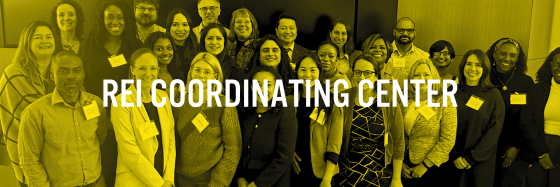
REI Coordinating Center FAQ
Significance
Why are highly impacted populations experiencing severe substance use health challenges?
Highly impacted populations face complex challenges leading to health challenges and lack of access to quality care. These populations often experience barriers to treatment, mistrust of healthcare systems, and disruptions in recovery supports, further compounded by traumas such as disproportionate losses from COVID-19 and halted drug treatment and harm reduction services.
What challenges are researchers facing when conducting studies within highly impacted populations?
Researchers encounter several challenges, including mistrust towards academic and research institutions among highly impacted populations. There's a prevalent fear that research findings could perpetuate negative stereotypes or that biological samples could be misused. Moreover, these populations often feel that researchers take valuable information without offering direct benefits or sharing the results of their studies, creating an asymmetry in the researcher-population relationship.
How do personal biases and gaps in understanding affect research in highly affected populations?
Even with good intentions, researchers who may not be a part of these highly affected populations might not fully understand the lived realities of study participants from these populations, leading to oversights that can impact the study's effectiveness. One example is failing to anticipate the fear among disproportionately affected members that having Narcan could lead to unwarranted police searches due to the stigma of drug use, thus impacting participants' willingness to carry lifesaving medication.
What is the role of the UK-REI-CC in addressing these challenges?
The UK-REI-CC aims to bridge the gap between researchers and highly impacted populations by creating an intentional learning community. This community fosters connections, delivers training, develops research resources, and disseminates findings to reduce health inequities. By guiding teams in challenging dialogues, examining biases, building cultural humility, and employing evidence-based practices, the UK-REI-CC is crucial in enhancing community-engaged substance use research with underserved communities. The UK-REI-CC also facilitates collaboration and communication between Highly Resourced Institutions (HRIs) and Limited Resourced Institutions (LRIs), acknowledging the importance of interconnectedness in achieving health equity.
Innovation & Approach
What is the UK-REI-CC's approach to addressing challenges in health and research?
The UK-REI-CC employs a novel approach centered on the Radical Healing of Communities of Color framework. This method acknowledges generational and current-day trauma, impacting relationships between scientists and highly affected populations. Key to this approach is the concept of collectivism, with resilience and justice at its core. Activities and aims are rooted in a strength-based perspective, focusing on community stability, partnership sustainment, and the avoidance of perpetuating negative stereotypes.
How does the UK-REI-CC ensure fair representation among researchers and community members in UK-REI-CC projects?
The center is committed to valuing, listening to, and respecting all projects and investigators, irrespective of their resources or perceived hierarchy. This extends within research teams, considering power differentials. Feedback is sought through various means, ensuring those in less powerful positions are heard. The approach emphasizes strength-based orientation, encouraging projects to reflect the resilience of highly impacted populations.
What qualifications and experience does Dr. Danelle Stevens-Watkins bring to the UK-REI-CC?
Dr. Stevens-Watkins is a licensed psychologist, a professor in counseling psychology, and an Associate Vice President for Research. With an extensive track record on National Institute on Drug Abuse (NIDA) projects, she leads UNITE, a substantial research priority area at the University of Kentucky. Under her guidance, the university has seen a significant increase in grants for research. Her experience extends to community-engaged research, emphasizing mental health outcomes and addressing substance use disorders among highly impacted populations.
What are the objectives of the kickoff and annual investigators' meetings organized by the UK-REI-CC?
The meetings are integral to building a learning community across REI teams, promoting best practices in REI research, and hastening health research. The kickoff meeting initiates the multi-year collaboration among grantees, the coordinating center, the National Institute on Drug Abuse (NIDA) steering committee, and the expert panel, focusing on project details, challenges, and collaborative team formation. Subsequent annual meetings continue this momentum, featuring presentations, progress updates, in-person training, and networking opportunities. These gatherings underscore the UK-REI-CC's commitment to collectivistic, strengths-based, community-engaged research.